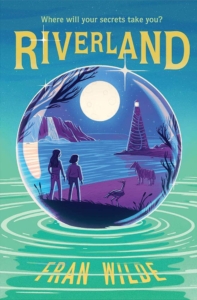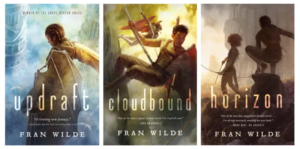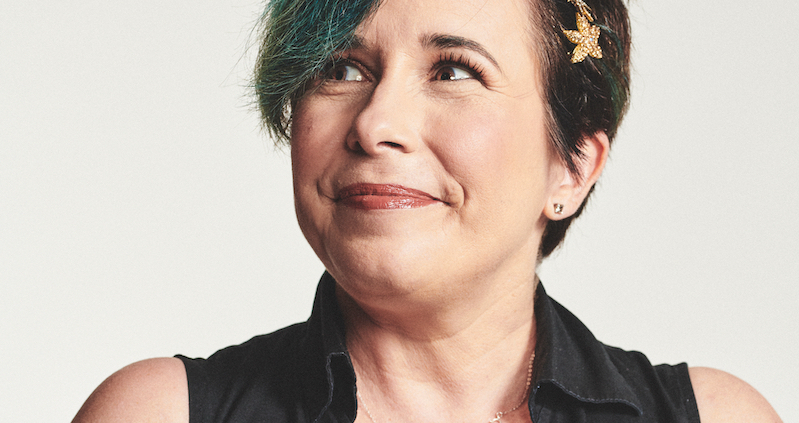Fran Wilde: Faculty Spotlight
It has been said that writing for children is an exploration of liminal spaces: the gateways between early childhood and adolescence, adolescence to adulthood, and, beyond age group and into genre, between reality, fantasy, science fiction, and other creative liminal spaces ripe for exploration. If there’s one author who is unafraid to venture into the experimental–and with wonderful results–it is recent faculty addition, Fran Wilde. This talented author’s novels and short stories have been finalists for a World Fantasy Award, a Lodestar, four Hugo Awards, four Locus Awards, and six Nebula Awards (two of which they won.)
Tell us a bit about yourself and your work. What are you most proud of?
I write for kids, adults, and everyone in between. I’m a genre-jumper — I love slipstream, science fiction, fantasy, horror, nonfiction, science-adjacent fiction, anything with engineering, non-fiction, and poetry. One of my goals for a while now has been to do one thing that scares me every week, and I’m pretty proud of doing that even when it’s tough — whether it’s taking creative risks with my writing, or trying something that’s completely new to me.
How has your experience been as a faculty member at VCFA?
I was asked to give a visiting writer lecture in January 2022, and the joy apparent in the community both creatively and in support of one another was evident even then. I was so excited to join the faculty in the summer of 2022 and have loved every aspect of being faculty so far. One of my favorite moments is sitting with my students at the end of the semester and looking at all the work that’s happened, and all the things we’ve learned. Another favorite moment is meeting my new students at the start of the new semester. I still get incredibly nervous before readings and lectures because of all the talent that’s in the room at VCFA!
You have an MFA in poetry and an MA in information architecture and interaction design. Do you find that your expertise in these areas adds something unique to your writing?
I think that everyone’s expertise and life experiences add those unique textures and flavors to their work that make them distinctly their own. I have a tendency towards play with both language and structure that may possibly sit at the axis between poetry and programming, but that’s also central to story.
I still want to write a poem that compiles into a game while you read it, but that’s a long-term goal.
 What is the book or creative project you’ve worked on that is dearest to your heart? Did you find that it was also your most successful project? Or is it currently in the works?
What is the book or creative project you’ve worked on that is dearest to your heart? Did you find that it was also your most successful project? Or is it currently in the works?
Riverland is one of the more important-to-me, and hardest, books I’ve worked on. The Ship of Stolen Words, which came out mid-pandemic, is one of my most whimsy-driven, and I think that the one dearest to my heart will always be that next project.
Success is a very ephemeral thing, isn’t it!
Tell us a little about your serial collections. They look really interesting!
These are adult science fiction and fantasy series. I’ve co-written three serials for Realm — Ninth Step Station I and II— which is a cyberpunk crime serial set in a post-semiapocalyptic Tokyo (created by Malka Older and co-written with Curtis Chen and J. Koyanagi) — it’s available on iTunes and being translated into Japanese, and Machina (created by me, and co-written by Malka Older, Martha Wells, and Curtis Chen) which is a high-tech engineering startup race to terraform Mars — kind of The Right Stuff meets Thelma and Louise meets The Expanse — also available on iTunes! I’ve also written series-novellas for Tor.com, the third of which comes out in June — these are secondary-world fantasy mini-epics featuring hidden histories, magical gems, and the people who can hear them.
You also edit a speculative short fiction magazine?
Yes! It’s called The Sunday Morning Transport (https://www.sundaymorningtransport.com/) , and I’m the managing editor, along with EIC Julian Yap. We publish one short story each week that’s around 3500-4,000 words.
I’ve loved working with authors on their stories — including VCFA faculty Will Alexander, Sara Rees Brennan, Karen Lord, and others coming soon — and I am so happy to see a number of stories make the years’ best lists, and really connect with readers.

How would you define speculative fiction for those authors who are never quite sure if they’re writing fantasy, sci fi, horror, etc.? Do you see speculative ficti
on becoming a big thing in the world of kidlit?
I came to science fiction and fantasy as a young reader, and I keep extra copies of The Phantom Tollbooth, Earthsea, and my favorite new authors (including many VCFA faculty) to give to young friends who are readers, so I see speculative fiction continuing to win new audiences in coming generations, hopefully for a very long time.
I love talking about science fiction as the literature of the possible, and how it explores what it means to be human in the face of technology. For me, that means that fantasy is the literature of the impossible — whether that’s stories about fantastical worlds and creatures, or moments of absolute wonder and wildness intersecting with what we know and/or believe to be true. Horror is a bit more of a spooky feeling — especially with young readers — and ways to unpack feeling scared and worried. Those are important skills, for any age.
What do you feel your greatest strength is and how would you encourage others to achieve that strength?
Resilience and curiosity are the muscles I work on the most, and I hope they help me level up both as a writer and a teacher — and mostly I encourage my students to try new things, and iterate. Iteration is a big thing in writing and engineering — the try-fail-try process is how we get great stories and great bridges too (and both have a lot in common, I think).
You can learn more about Fran and her work at www.franwilde.net!


